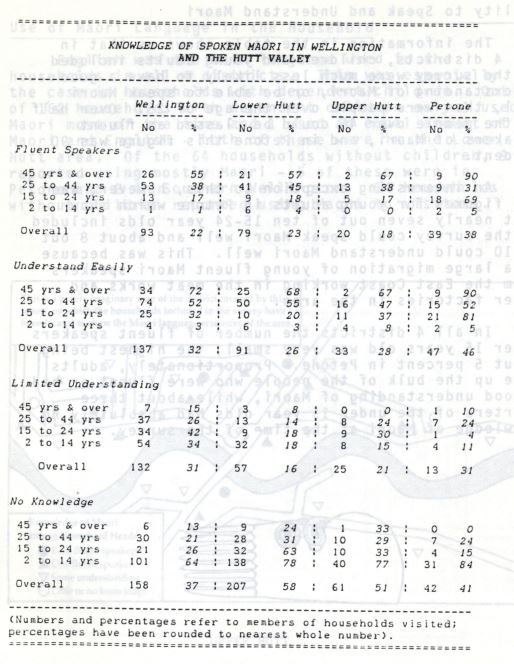-
Ngā Karere me Ngā Rauemi
News and Resources
Ngā Karere me Ngā Rauemi
News and Resources
-
Te Rangaihi Reo Māori
The Movement
Te Rangaihi Reo Māori
The Movement
-
Te Pae Kōrero
Our Community
Te Pae Kōrero
Our Community
-
Huihuinga
Events
Huihuinga
Events
-
Ngā Ara Ako
Learning Pathways
Ngā Ara Ako
Learning Pathways
-
SearchSearch
Search
Search

Although nearly two fifths of the parents interviewed had been punished at school for speaking Maori many were very supportive of the introduction of Maori into schools as a way of reviving the language. One informant supported this because she had found it so difficult teaching her own children to speak Maori in a city environment where virtually only English is spoken. Others said that Maori in schools would lead to greater understanding of cultural differences between Maori and Pakeha. One woman said she encouraged her children to learn Maori and join Maori culture clubs so that they would not feel embarrassed later on in life for not being able to speak Maori. Indeed, many of our informants did express embarrassment and regret that they did not know how to speak Maori. Identity and self-esteem were also qiven as important reasons for knowing the language.
Several people, mainly in Petone, said that they speak only Maori to their children to ensure that they will be fluent. One woman said that she refuses to speak to her nieces unless they speak Maori, to her. On the other hand, a significant number of people were against the teaching and learning of Maori. Some of these informants remembered their own experiences of speaking Maori as children. As one man, in Petone, who was very concerned about Maori dying out, said "It's no wonder parents don't teach their kids Maori when they were strapped at school for speaking it."
Te Whanganui-a-Tara | Wellington | Wellington City | 1970-75 | 5% of Māori children can speak te reo. (1970-75) | Story is by tangata whenua
















Comments